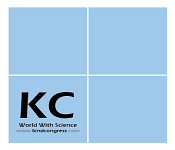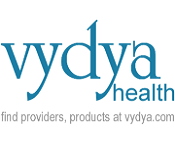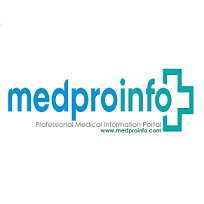With the coordination of Organizing Committee, 2nd International Conference on Stress Management will be held on February 26, 2021. It assembles the significant and whole mix of Psychiatrists, Neuro specialists, Neuro surgeons and pioneers both from the academic network and industry over the globe to exchange their knowledge, insight, and researches.
Stress Management Meet 2021 will be a great platform for exchanging new ideas and research. It’s an online event which will grab the attendee’s attention to explore in field of psychiatry and neurology. This gathering will provide networking sessions for Neurologists, Psychiatrists, Neural Professionals, Nurses, Scientists, Professors, Business Assistants, Students, and individuals from all neural associations and universities. The quality information is shared by Keynote Speakers, Symposia, workshops, and exhibitions in this conference.
Why attend??
This International Congress will show a fusion of intriguing contextual analyses in psychology and mental health. It aims to develop the advanced technologies in the field of Psychiatry. The webinar will be addressed by the gathering of people reactions and inquiries to all the more likely encourage learning in psychology and neurology.
-
To share and explore knowledge in your perspective field.
-
To discuss on importance and relevance to advancing in neuroscience with continuous professional development.
-
Excellent platform to showcase the latest products and formulations in neurology.
-
To find the most recent and innovative advancements in psychiatry and mental health.
Target Audience:
-
Neuro surgeons
-
Psychologists
-
Neuropsychologist
-
Psychiatrists
-
Mental Health Psychiatrist
-
Psychiatric Technician
-
Psychiatric-Mental Health Nurse
-
Scientists and professors
-
Neuroimaging Technician
-
Students
-
Diagnostic laboratory professionals
-
Business Entrepreneurs
-
Industry professionals
-
Directors/Managers/CEO’s
-
Presidents & Vice Presidents
Psychiatry is a branch of neuroscience which includes the study, diagnosis, treatment and prevention of the disorders related to brain. These include many abnormalities related to mood, behaviour, cognizance which leads to Psychiatry and Mental health. A psychiatric disorder is a mental disorder which results in stress, anger, depression. Health Professionals who are involved in the treatment of brain, psychology problems are called neurologists, psychiatrist and psychotherapist.
Addiction is a common problem related to neuroscience. The functioning of brain and body can be affected by a complex disease called Addiction which is chronic in nature. It damages the relationship between the family members and neighborhood. Addiction will be affecting the younger generation in this society. Psychiatrists are innovating new therapies, advanced techniques and medications to solve this dangerous problem. Symptoms of addiction are tension, depression and anger. Schizophrenia is a mental disorder in which people react abnormally to the reality.
-
Addiction Medicine
-
Drug Abuse
-
Paranoid Schizophrenia
The medical conditions of stress, anxiety and depression are different but their symptoms, causes and treatments overlap with one another. Depression is a serious state of mind, it reflects how one feels, thinks and their day-to-day activities. Recent studies indicate that the rate of depression is more in women than in men. In men depression results in anger, drug addiction and alcohol consumption but in women it results in guilt and sadness. Physical or emotional tension is termed as Stress. It comes from a thought which makes you feel lonely, frustrated and angry. When you feel threatened or angered your nervous system releases few stress hormones which results in heartbeat increases, muscles tighten, blood pressure rises, breath quickens. These disorders affect the function of brain and the brain stops functioning its activities. The person who has anger will experience physical effects like increased blood pressure, cardiac diseases and many more.
-
PTSD (Post Traumatic Stress Disorder)
-
Moodiness, irritability, or anger
-
Feeling overwhelmed
-
Loneliness and isolation
Dementia is a disease and condition that is characterized by the decline of memory. The most common cause of dementia is Alzheimer’s. Microscopic bleeding and Blood vessel blockage in the brain can be caused because of Vascular Dementia. Brain cells can be damaged by dementia and can be caused by abnormal brain changes. When cells in particular region are damaged completely then the functionality of the body cannot be carried. Bipolar disorder is mental illness, which brings changes in moods, behaviour and sleeping.
Brain Cancer has a variety of symptoms like behavioral change, confusion and seizures. Not all tumors are cancers. Tumours are of two types’ benign tumour and malignant tumour. Benign tumour is less dangerous than malignant tumour. Cancer is term used for malignant tumours. Symptoms of brain cancer are nausea, vomiting and abnormalities in vision. Brain tumour is a collection of abnormal cells in your brain. Primary brain tumours originate in your brain and are benign (non-cancerous) which can develop from brain cells, glands and nerve cells. Secondary brain tumour occurs when cancer cells spread from another organ like lung or breast to your brain. Few tumours cause pressure to the surroundings of the brain and some tumours cause damage to the brain tissue directly which leads to brain injury.
Child Neurology is also known as Paediatric Neurology. This represents the diseases related to the nervous system in new born, adolescents, infants, and children. Paediatric Neurologists are responsible for the diagnosis, treatment of the nervous system in children and even spine related disorders can also be treated. Child psychiatry is a multi-disciplinary research field which includes advanced paediatric researches. It influences the development and course of the neurological disorders and treatment responses to various interventions. Psychiatric disorders and mental health of children, adolescents and infants are very challenging for psychiatrists and health professionals to treat them. Autism is a mental disorder which arises in children
The disorders related to the nervous system are treated in the field of Neurology. The peripheral and central nervous system disorders are diagnosed and treated by neurologists and psychiatrists. Any disorder related to brain, nerves and spinal cord are treated as Neurological disorders. Paralysis, muscle weakness, loss of sensation and seizures are the symptoms of Neurological disorders. Neurosurgery is also known as neurological surgery. It is concerned with the diagnosis, prevention and treatment of the nervous system. Neurological problems can be determined by our mental health.
-
Peripheral Nervous System
-
Central Nervous System
Healthy sleep plays vital role in humans so that they can retain all the energy to continue their lives. Too much pressure and stress leads to sleep disorders, it is also determined as the medical disorders in the sleep patterns of the person. Teeth grinding (bruxism), night terrors and allergy or cold may be reasons for the disruption in the sleep of a person. Most common sleep disorder is insomnia; it is a condition where there is difficulty in falling asleep and staying asleep. Music therapy, Melatonin or Hypnotherapy are the treatments used for people who are Brain is the control centre of our body, brain disorder is a condition which affects your brain.
Alzheimer’s disease and dementia are the most common neurological disorders. One of the types of Dementia is Alzheimer’s disease. It is mostly observed in old or aged people. In every 4 seconds, a new case of dementia will be detected. Loss of memory, communication and thinking abilities are the symptoms of Alzheimer’s disease. Nerve cells in the brain produce Dopamine for all the activities of brain. Parkinson’s disease damages the nerve cells and decreases the neurons which produce dopamine.
Abnormal movements or unusual electric activity in the brain results in Epilepsy. Seizures and epilepsy are inter-related, but not all people suffering from seizures have epilepsy because seizures are only the symptoms, whereas epilepsy is a disorder. Non-epileptic seizures are called as pseudo seizures; these are caused by psychological stress. Seizures and non- epileptic seizures look alike; this feature makes the diagnosis of true epilepsy difficult. Birth defects of the brain and spinal cord
Stroke occurs in the brain when the blood vessels or nerve cells blocks, bleeds or ruptures which is called as brain stroke. The supply of blood and oxygen to the brain tissues will stop due to the damage of blood vessels. Human brain tissues and cells start dying within few minutes without the supply of oxygen. Poor flow of blood results in cell death which causes stroke. Mainly two types of strokes: ischemic this is due to lack of blood flow and hemorrhagic which is due to bleeding. TIA (Transient Ischemic Attack) is a type of stroke which lasts only for few minutes. When the blood supply in the brain is blocked then TIA disorder arises.
-
Embolic stroke
-
Thrombotic stroke
-
Dizziness
-
Difficulty walking
Gender is the vital determinant of mental health. Men and women have different control over their mental health in their lives based on their position, status and treatment in the society. Women’s Mental Health is different from that of men’s. Psychiatric disorders are observed in women is different from men. Depression is the major mental health problem in which the suffering rate in women is more than men. Mental disorder is an involuntary psychological pattern that occurs in individual and causes distress or disability that is not accepted as normal culture.
Yoga is a way of life, when it is practiced daily it gives all-round benefits to our body mentally and physically. Yoga psychotherapy is a therapy which resolves many disorders related to brain and spine. Practice of yoga and meditation has done from centuries. Yoga is not just only a practise of physical exercise but also a spiritual grounding. Meditation is a part of yoga; it deals with mental health, mental relaxation and concentration. Meditation focuses on thoughts and breath. By doing yoga and meditation mind will be relaxed completely. Benefits of doing yoga are improves heart health, reduces back pain, regulates digestion and helps in curing a hangover. Benefits of meditation are managing depression, anxiety disorders and improve concentration.
-
Emotional upliftment
-
Stress Management
-
Rheumatoid Arthritis
Outbreak of Pandemic Coronavirus disease made everyone stressed. Anxiety, depression and fear about an outbreak may cause mental health disorders in adults and children. Coping of mental health during covid-19 is important for the people you care about. Stress during an outbreak involves changes in sleeping habits, eating patterns changes, worsens mental health conditions, over thinking, difficulty in sleeping and concentrating. Sleep disorders arise in every individual during the outbreak. Mental health of children, teens, adults and older people will vary during this outbreak. Take care of yourself and your community to cope with stress disorder.
Neurorehabilitation is a tedious medical process which focuses to provide recovery from a brain and spinal cord, and to cure any functional alterations resulting from nervous system injury. They focus on mainly nutrition, psychological and works with their attitude and skills of those disabled person and their surroundings. Now, it’s a mixture of traditional medicine and precise science.
Neuropsychiatry is the blend of Psychiatry and Neurology that deals with relationship between human behaviour and brain function where in broad overlaps between neurology, psychiatric symptoms of neurological diseases, behavioral neurology and neurophysiology. Clinical neurophysiologist performs intraoperative monitoring, electro diagnostic, electroencephalography and evoked potentials.
Cognitive Neuroscience is branch of neuroscience that deals with the scientific study of neural mechanisms and neural manifestations. Occasionally those cognitive neuroscientists utilize brain imaging methods like PET, SPECT. New brain mapping technology particularly magnetic resonance imaging or functional MRI had allowed researchers to investigate strategies behind cognitive physiology by observing brain function that how brain enable our mind.
In today’s fast paced world stress is a common thing that every one’s mind and body will respond to many kind of demand and threat. When you sense a danger, whether it is imaginary or real, our body defenses kick into high gear in a rapid, automatic and will not let us to do anything that we are focused to do. It can also affect all aspects of your life, including your emotions, behavior, thinking ability and physical health.
Stress is a part of human life. Doing physical activity can help to improve our sleep, better sleep mean better stress management? There are some formal exercise program one can still find way to improve stress management. Or even there are benefits of following proper diet for stress management which helps us to build upon immune system, level your mood and lower our blood pressure.







